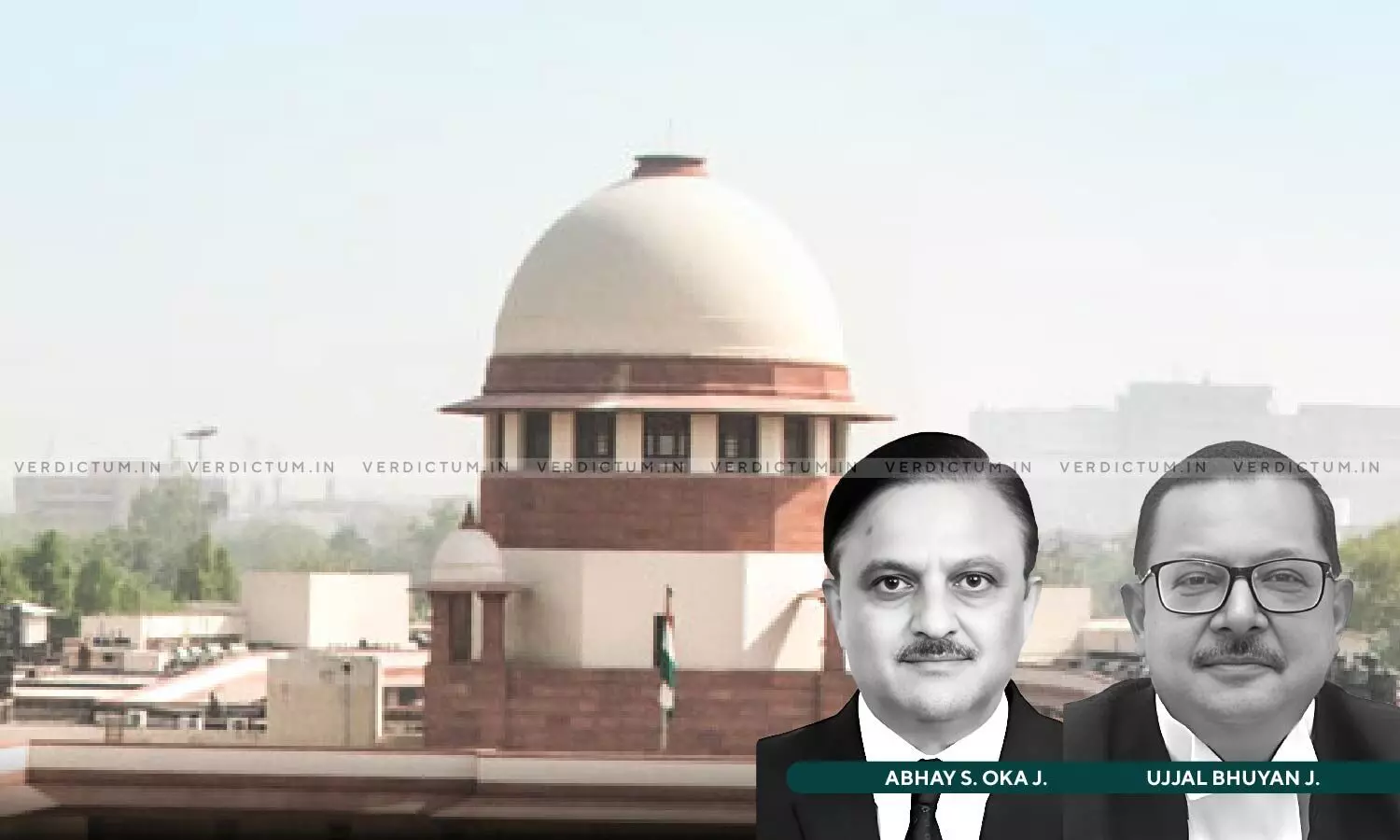
Justice Abhay S. Oka, Justice Ujjal Bhuyan, Supreme Court
No Specific Instances Of Cruelty Or Harassment Apart From Stating There Was Demand For Dowry: SC Acquits Husband & Father-In-Law
 |
|The Supreme Court allowed the Appeal filed by a husband and his father challenging their conviction for the death of the wife who was found in burnt condition.
The Supreme Court acquitted a husband and his father earlier convicted under Sections 304B and 498A of the IPC while holding that the witnesses did not depose about the specific instances of cruelty or harassment apart from stating that there was a demand for dowry.
The Court allowed the Appeal filed by a husband, a Captain in the Army, and his father (Appellants) challenging their conviction for the death of the wife who was found in burnt condition within 7 years of her marriage. The father of the deceased alleged that the deceased had disclosed to him that the husband used to tell her that considering his status as a Captain in the Army, her family members had not given adequate dowry.
The Bench of Justice Abhay S Oka and Justice Ujjal Bhuyan held, “We must note that both the witnesses have not deposed about the specific instances of cruelty or harassment apart from stating that there was a demand for dowry. As stated earlier, the version of both the witnesses regarding the demand for dowry is an omission. In the circumstances, the necessary ingredients of the offence under Section 304B of the IPC were not established.”
Senior Advocate Satish Tamta represented the Appellants, while Advocate Anubha Dhulia appeared for the Respondent.
Observations of the Court
The Court pointed out that the father of the deceased did not disclose when was the last time met his daughter before her death. He had also accepted that he was unable to recollect the dates on which he paid the alleged amounts of dowry. In the report submitted by him, on the basis of which the First Information Report (FIR) was registered, he accepted that the fact of sending the the money (alleged dowry) was also not mentioned.
Therefore, the testimony of the deceased’s father regarding the demand for dowry by the Appellants was an ‘omission,’ the Court held. “These omissions, being significant and relevant, become contradictions by virtue of the explanation to Section 162 of the Code of Criminal Procedure, 1973,” it stated.
The Bench explained, “For proving the offence of dowry death, the prosecution must prove that (i) the death of the woman is caused by any burns or bodily injury or has occurred otherwise than in normal circumstances, (ii) the death has occurred within seven years of her marriage, (iii) soon before her death, she was subjected to cruelty or harassment by her husband or his any relative and (iv) the cruelty or harassment was for or in connection with the demand for dowry.”
Consequently, the Court held that neither was there any legally admissible evidence of the demand for dowry made by the Appellants nor was there any specific evidence of any cruelty. “The impugned judgment dated 21st March 2013, passed by the High Court and the impugned judgment dated 27th October 2001, passed by the Sessions Court, are hereby quashed and set aside. The appellants are acquitted of the offences alleged against them,” it held.
Accordingly, the Supreme Court allowed the Appeal.
Cause Title: Bhupal Singh & Anr. v. State Of Uttarakhand (Neutral Citation: 2025 INSC 82)
Appearance:
Appellants: Senior Advocate Satish Tamta; Advocates Gireish Kandpal and Chirag Joshi; AOR Ghanshyam Joshi
Respondent: Advocate Anubha Dhulia; AOR Akshat Kumar